In the realm of public figures, there exists a spectrum of admiration and disdain, with certain individuals eliciting strong emotions and polarized opinions. This article covers the lives and legacies of 10 controversial Political figures who have left an indelible impact on world as well as domestic politics of their respective country. From despised dictators to divisive political leaders, these individuals have garnered both fervent followers and vehement critics. As we examine their lives and legacies, we are reminded of the complexities of human nature and the intricate tapestry of history that shapes our understanding of the world. Here we start from the first name in our list-
1. Donald Trump – The Polarizing Political Figure
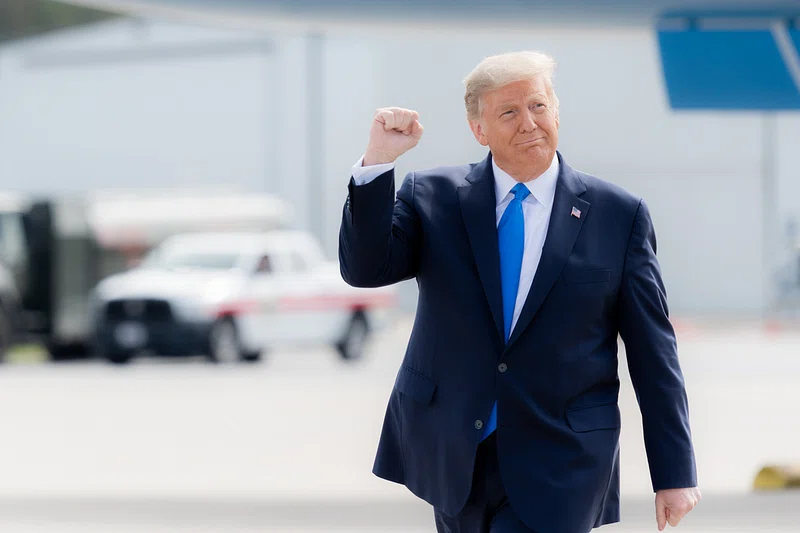
While opinions on Donald Trump vary widely, there are certain policies and actions during his presidency that have contributed to him being perceived as a highly polarizing and, for some, a hated figure. Here are three policies that have generated significant controversy:
a. Immigration Policies:
During his presidency, Donald Trump implemented several immigration policies that were highly divisive. One of the most notorious among them was the “zero tolerance” policy at the US-Mexico border, which resulted in the separation of thousands of migrant children from their families. The images and stories of children being held in detention centers sparked outrage both domestically and internationally, with critics condemning the policy as inhumane and cruel.
b. Travel Bans:
Trump’s executive orders imposing travel bans targeting predominantly Muslim-majority countries also stirred significant controversy. The initial versions of these bans faced legal challenges and were criticized for being discriminatory and Islamophobic. Critics argued that they undermined religious freedom and contradicted American values of inclusivity and tolerance. Despite revisions and legal battles, the travel bans remained a focal point of opposition to Trump’s administration.
c. Climate Change Denial and Environmental Rollbacks:
Throughout his presidency, Trump expressed skepticism about climate change and rolled back numerous environmental regulations aimed at curbing greenhouse gas emissions and protecting natural habitats. His decision to withdraw the United States from the Paris Climate Agreement drew widespread condemnation from environmental activists, world leaders, and scientists. Critics argued that Trump’s stance on climate change posed a significant threat to global efforts to address the climate crisis and protect the planet for future generations.
2. Kim Jong-Un – The Authoritarian Leader of North Korea
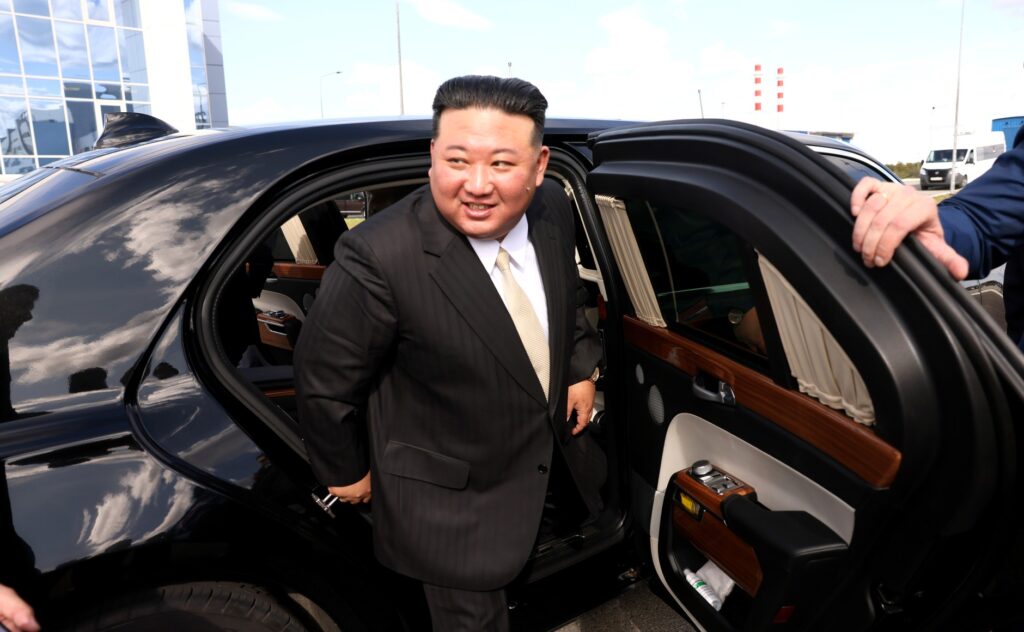
While it’s important to note that opinions on the “most hated” individual can vary widely, here are three policies associated with Kim Jong-un’s regime that have drawn significant international criticism:
a. Human Rights Abuses:
The North Korean regime, under Kim Jong-un’s leadership, has been widely condemned for its severe human rights violations. These violations include forced labor camps, public executions, arbitrary detentions, and suppression of freedom of speech, expression, and religion. The regime’s oppressive policies have led to widespread suffering among the North Korean population and have been denounced by various international organizations and governments.
b. Nuclear Weapons Program:
Kim Jong-un’s pursuit of nuclear weapons and ballistic missile technology has heightened tensions on the Korean Peninsula and raised concerns globally. Despite international sanctions and condemnation, North Korea has continued to develop its nuclear capabilities, conducting multiple nuclear tests and launching intercontinental ballistic missiles. The regime’s aggressive pursuit of nuclear weapons has destabilized the region and posed a significant threat to international security.
c. Military Provocations and Threats:
The North Korean regime, under Kim Jong-un’s leadership, has engaged in provocative actions, including missile launches, artillery drills, and military exercises near the border with South Korea. These actions have escalated tensions on the Korean Peninsula and raised fears of potential conflict. Kim Jong-un’s regime has frequently issued threats against South Korea, the United States, and other countries, contributing to a volatile security environment in the region.
3. Bashar al-Assad – The Dictator of Syria
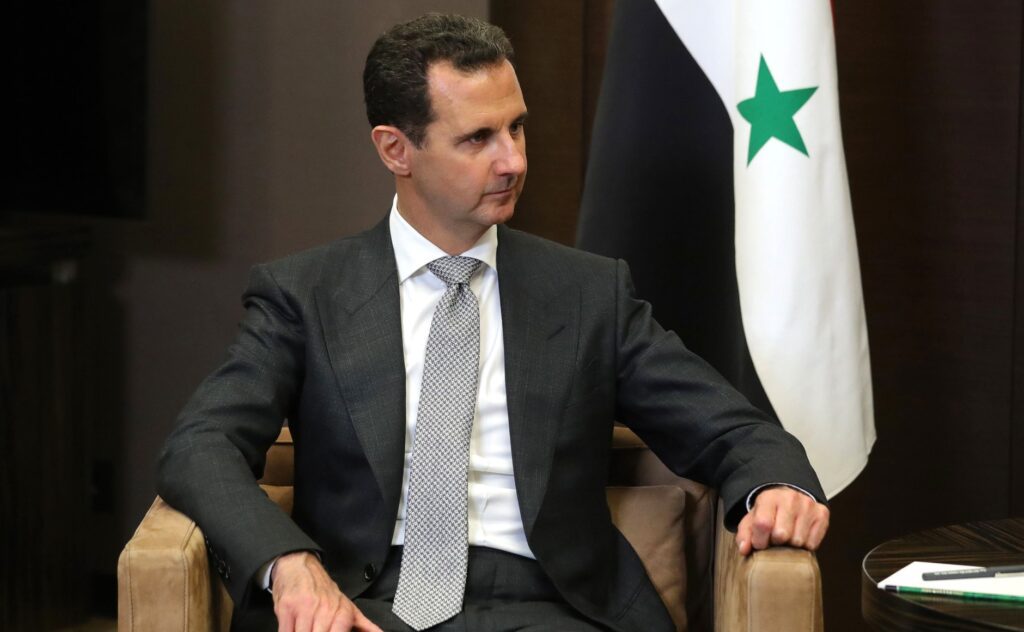
Bashar al-Assad is indeed a highly controversial figure, and several of his policies have contributed to his status as one of the most hated personalities in the world. Here are three policies that have garnered widespread condemnation:
a. Brutal Crackdown on Dissent:
Bashar al-Assad’s regime has been notorious for its ruthless suppression of dissent. In response to peaceful protests during the early stages of the Syrian Civil War in 2011, Assad’s government resorted to extreme measures, including arbitrary arrests, torture, and extrajudicial killings, to quell opposition. The use of indiscriminate violence against civilians, including the infamous chemical attacks on civilian populations, has led to widespread outrage and condemnation from the international community.
b. Use of Chemical Weapons:
Assad’s regime has repeatedly been accused of using chemical weapons against civilians in rebel-held areas throughout the Syrian Civil War. The use of sarin gas and other chemical agents to target civilian populations constitutes a grave violation of international law and has resulted in horrific casualties, including children and civilians. These attacks have been widely condemned by the United Nations and various human rights organizations, further cementing Assad’s reputation as a pariah on the global stage.
c. Targeting of Hospitals and Medical Facilities:
Another policy that has contributed to Assad’s notoriety is the deliberate targeting of hospitals and medical facilities in opposition-held areas. Assad’s forces have systematically bombed hospitals, clinics, and medical personnel, depriving civilians of essential medical care and exacerbating the humanitarian crisis in Syria. Such actions constitute war crimes under international law and have drawn condemnation from humanitarian organizations and world leaders alike.
4. Vladimir Putin – The Authoritarian Leader of Russia

while it’s important to note that perceptions of Vladimir Putin vary widely, there are several policies and actions attributed to him that have garnered significant criticism and controversy. Here are three such policies:
a. Annexation of Crimea:
One of the most widely condemned actions associated with Vladimir Putin is Russia’s annexation of Crimea in 2014. Following the Ukrainian revolution and the ousting of pro-Russian President Viktor Yanukovych, Russian forces seized control of Crimea, subsequently holding a disputed referendum in which Crimea voted to join Russia. This move was widely condemned by the international community as a violation of Ukraine’s sovereignty and territorial integrity, leading to sanctions against Russia and exacerbating tensions between Russia and the West.
b. Suppression of Political Opposition:
Putin’s regime has been criticized for its suppression of political dissent and opposition. This includes crackdowns on opposition parties, independent media outlets, and civil society organizations. Critics argue that Putin has systematically undermined democracy in Russia by restricting political freedoms, manipulating elections, and silencing dissenting voices through intimidation, harassment, and even imprisonment.
c. Military Intervention in Syria:
Putin’s support for the regime of Bashar al-Assad in Syria’s civil war has also drawn widespread condemnation. Russia’s military intervention, which began in 2015, has been accused of targeting civilian populations and infrastructure, including hospitals and schools, resulting in significant civilian casualties and humanitarian suffering. Moreover, Russia’s actions in Syria have prolonged the conflict and complicated efforts to reach a peaceful resolution, further exacerbating tensions between Russia and the international community.
5. Xi Jinping – The Authoritarian Leader of China

While it’s important to maintain objectivity and acknowledge that perceptions of individuals can vary widely, Xi Jinping, the General Secretary of the Communist Party of China and President of the People’s Republic of China, has faced criticism for several policies that have contributed to negative perceptions:
a. Uighur Internment Camps and Human Rights Violations:
Xi Jinping’s government has been heavily criticized for its treatment of Uighur Muslims in Xinjiang province. Reports from human rights organizations and leaked documents suggest widespread internment, surveillance, and forced assimilation of Uighur Muslims into Han Chinese culture. These actions have been condemned as a gross violation of human rights and have sparked international outrage.
b. Crackdown on Dissent and Suppression of Freedom of Speech:
Under Xi Jinping’s leadership, China has intensified its crackdown on dissent, targeting activists, journalists, lawyers, and religious minorities. The government has tightened control over the internet and social media, censoring content deemed critical of the Communist Party or supportive of democratic ideals. The suppression of free speech has led to concerns about the erosion of civil liberties and stifling of political opposition.
c. Expansionist Foreign Policies and Disregard for International Norms:
Xi Jinping’s assertive foreign policies, particularly in the South China Sea and towards Taiwan, have raised tensions in the region and drawn criticism from neighboring countries and the international community. China’s aggressive territorial claims and construction of artificial islands in disputed waters have been viewed as provocative and destabilizing, undermining efforts to maintain peace and stability in the Asia-Pacific region.
6. Jair Bolsonaro – The Far-Right President of Brazil
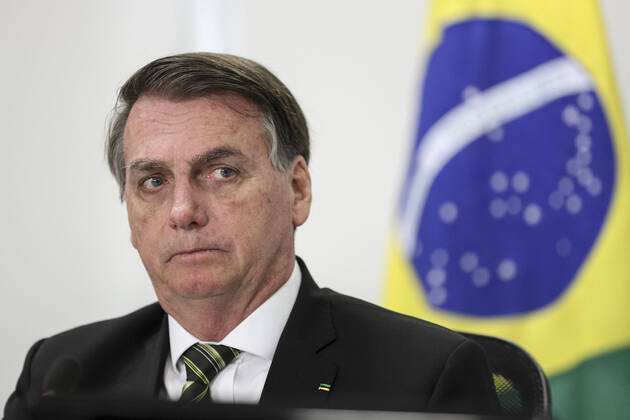
here are three policies implemented by Jair Bolsonaro that have contributed to his controversial reputation and could be considered as factors leading to him being perceived as one of the most hated personalities in the world:
a. Environmental Policy Rollbacks:
Jair Bolsonaro has faced significant backlash for his environmental policies, particularly his approach to the Amazon rainforest. Bolsonaro has actively supported deforestation and encouraged agricultural expansion in the Amazon, leading to widespread criticism from environmentalists and world leaders. His administration has rolled back protections for indigenous lands and weakened enforcement of environmental regulations, exacerbating deforestation and contributing to the destruction of one of the world’s most vital ecosystems. Bolsonaro’s disregard for environmental conservation has sparked international condemnation and fueled concerns about the impact of his policies on climate change and biodiversity.
b. Handling of the COVID-19 Pandemic:
Bolsonaro’s handling of the COVID-19 pandemic has been highly controversial and has contributed to widespread criticism both domestically and internationally. He has downplayed the severity of the virus, dismissed scientific evidence, and opposed lockdown measures, instead prioritizing economic concerns over public health. Bolsonaro’s refusal to implement comprehensive containment measures and his promotion of unproven treatments have been widely condemned by health experts and political opponents. Brazil has suffered one of the highest death tolls from COVID-19 globally, and Bolsonaro’s handling of the crisis has led to accusations of negligence and incompetence, further eroding public trust in his leadership.
c. Human Rights Violations and Authoritarian Tendencies:
Bolsonaro’s presidency has been marked by a concerning disregard for human rights and democratic norms. His administration has been accused of suppressing dissent, attacking journalists and activists, and undermining democratic institutions. Bolsonaro has openly praised Brazil’s former military dictatorship and expressed admiration for authoritarian leaders, raising fears about the erosion of democratic values in the country. His aggressive rhetoric, divisive politics, and attacks on marginalized communities, including LGBTQ+ individuals and indigenous peoples, have fueled social tensions and polarized Brazilian society. Bolsonaro’s authoritarian tendencies and disregard for human rights have drawn condemnation from human rights organizations and world leaders, contributing to his reputation as a highly divisive and controversial figure.
7. Rodrigo Duterte – The Strongman President of the Philippines
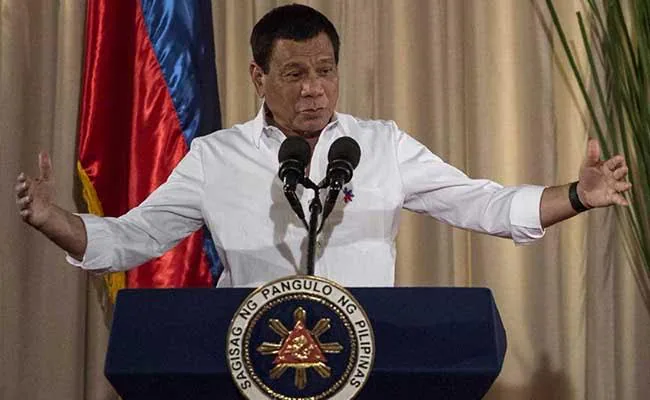
Rodrigo Duterte, the President of the Philippines, has garnered significant controversy and criticism for several of his policies, which have contributed to his reputation as a highly polarizing and disliked figure. Here are three of his policies that have particularly fueled hatred and backlash:
a. War on Drugs:
Rodrigo Duterte’s brutal war on drugs has been one of his most notorious and widely condemned policies. Since taking office in 2016, Duterte has encouraged a ruthless crackdown on drug offenders, advocating for extrajudicial killings and vigilante justice. Thousands of individuals, including suspected drug users and dealers, have been killed by police and vigilante groups, sparking outrage from human rights organizations and the international community. The brutal methods employed in the war on drugs have led to allegations of widespread human rights abuses, including unlawful killings and disregard for due process.
b. Martial Law in Mindanao:
In May 2017, Duterte declared martial law in the southern region of Mindanao following clashes between government forces and Islamist militants in Marawi City. While initially intended as a response to the threat posed by extremist groups, the declaration of martial law raised concerns about the potential abuse of power and erosion of civil liberties. Critics argue that Duterte’s imposition of martial law has led to increased militarization, arbitrary arrests, and violations of human rights, particularly affecting vulnerable communities in Mindanao.
c. Attacks on Press Freedom and Dissent:
Rodrigo Duterte has repeatedly targeted journalists, media organizations, and political opponents critical of his administration. His administration has been accused of orchestrating a campaign of intimidation and harassment against journalists and media outlets perceived as critical of the government. Duterte has frequently lashed out against journalists, labeling them as “fake news” peddlers and enemies of the state. Additionally, the Duterte administration has sought to silence dissent by cracking down on activists, human rights defenders, and political opponents, using legal means such as the arrest and detention of opposition figures on dubious charges.
8. Recep Tayyip Erdoğan – The Authoritarian President of Turkey

Recep Tayyip Erdoğan, the President of Turkey, has been a highly controversial figure, and several of his policies have contributed to widespread criticism and made him a polarizing figure. Here are three of his policies that have fueled hatred and controversy:
a. Crackdown on Dissent and Media Freedom:
Erdoğan’s government has been accused of systematically targeting journalists, academics, and activists critical of his regime. Under his leadership, there has been a significant erosion of media freedom, with numerous journalists arrested, media outlets shut down, and censorship imposed on dissenting voices. Critics argue that Erdoğan’s crackdown on free speech undermines democracy and stifles political opposition, leading to widespread resentment both domestically and internationally.
b. Authoritarian Power Grab and Erosion of Democratic Institutions:
Erdoğan has been criticized for consolidating power and undermining democratic checks and balances in Turkey. Following a failed coup attempt in 2016, he initiated a widespread purge targeting perceived opponents, resulting in the dismissal of thousands of civil servants, judges, and military personnel. Subsequently, Erdoğan pushed through constitutional changes that expanded the powers of the presidency, concentrating authority in his hands and diminishing the independence of the judiciary. This centralization of power has raised concerns about Turkey’s democratic backsliding and fueled resentment among those who oppose Erdoğan’s authoritarian tendencies.
c. Repressive Policies Towards Minorities and Political Dissidents:
Erdoğan’s government has faced criticism for its treatment of ethnic and religious minorities, as well as political dissidents. Kurdish communities in Turkey have been subjected to discriminatory policies, including the suppression of cultural rights and crackdowns on Kurdish political parties and activists. Additionally, Erdoğan’s administration has targeted opposition figures, including members of the pro-Kurdish Peoples’ Democratic Party (HDP), with arrests and prosecutions on charges of terrorism and sedition. These repressive measures have exacerbated ethnic tensions and contributed to Erdoğan’s reputation as a divisive and authoritarian leader.
9. Nicolas Maduro – The Authoritarian Leader of Venezuela

here are three policies associated with Nicolas Maduro’s presidency that have contributed to his status as a polarizing and disliked figure:
a. Economic Mismanagement and Hyperinflation:
Nicolas Maduro’s economic policies, characterized by heavy state intervention, currency controls, and mismanagement, have led to hyperinflation and economic collapse in Venezuela. The country’s currency, the bolívar, has become practically worthless, with prices skyrocketing and basic necessities becoming increasingly unaffordable for ordinary citizens. This economic turmoil has fueled widespread discontent and contributed to Maduro’s negative image both domestically and internationally.
b. Suppression of Political Opposition and Dissent:
Maduro’s regime has been accused of cracking down harshly on political opposition and dissent. Critics, including human rights organizations and foreign governments, have highlighted instances of arbitrary arrests, censorship, and intimidation of journalists, activists, and political opponents. By stifling dissent and limiting political freedoms, Maduro has further alienated large segments of the Venezuelan population and drawn condemnation from the international community.
c. Authoritarian Consolidation of Power:
In an effort to maintain control over the country, Maduro has taken numerous authoritarian measures to consolidate power. This includes stacking the judiciary and electoral institutions with loyalists, disqualifying opposition candidates, and manipulating electoral processes to ensure favorable outcomes for his party. Such actions have undermined democratic principles and institutions in Venezuela, eroding trust in the government and exacerbating tensions within the country.
10. Mohammed bin Salman – The Crown Prince of Saudi Arabia

While it’s important to approach this topic with sensitivity and accuracy, there are indeed controversial policies associated with Mohammed bin Salman, some of which have garnered criticism and contributed to negative perceptions of him. Here are three policies that have been particularly contentious:
a. Yemeni Civil War and Saudi-led Intervention:
Mohammed bin Salman, as the Defense Minister of Saudi Arabia, played a significant role in leading the Saudi-led coalition’s military intervention in Yemen in 2015. The intervention aimed to restore the internationally recognized government of President Abdrabbuh Mansur Hadi, who was ousted by Houthi rebels. However, the conflict has resulted in a humanitarian catastrophe, with widespread civilian casualties, displacement, and famine. The coalition, including Saudi Arabia, has been accused of indiscriminate bombing campaigns and violations of human rights, drawing condemnation from the international community and human rights organizations.
b. Khashoggi Murder and Crackdown on Dissent:
The murder of journalist Jamal Khashoggi in the Saudi consulate in Istanbul in 2018 sparked international outrage and condemnation. Mohammed bin Salman faced widespread criticism for his alleged involvement in the killing, which many believe was ordered by Saudi authorities. The incident highlighted the kingdom’s crackdown on dissent and freedom of expression, with numerous activists, journalists, and critics of the regime facing imprisonment, torture, or forced exile. The lack of accountability and transparency in the investigation further fueled negative perceptions of Mohammed bin Salman and his administration.
c. Women’s Rights Reforms Amid Continued Repression:
While Mohammed bin Salman has initiated some reforms aimed at modernizing Saudi Arabia, such as lifting the ban on women driving and granting them more rights in society, these changes have been overshadowed by ongoing repression and human rights abuses. Despite the loosening of some restrictions, women activists campaigning for greater freedoms, including the right to drive and end the male guardianship system, have been detained, silenced, and subjected to harassment. The government’s selective approach to reforms, coupled with its continued crackdown on dissent, has led to skepticism about its commitment to genuine progress and respect for human rights.
Conclusion:
While the individuals mentioned in this article have undoubtedly sparked controversy and drawn widespread criticism, it’s important to acknowledge that every person has their supporters and detractors. Despite the divisiveness surrounding these figures, there are those who fervently defend and champion their actions, beliefs, or leadership.
As we talk about the complexities of our world and engage in discourse about controversial figures, lets promote dialogue. It’s through respectful dialogue and a willingness to engage with differing perspectives that we can move towards a more inclusive and compassionate society.

